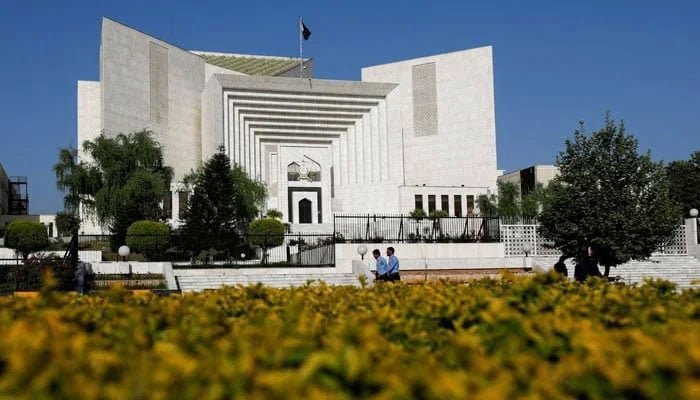Here’s a rephrased version of the article, maintaining the original meaning and tone:
The Supreme Court (SC) has ordered the chief secretary and relevant authorities to respond to a petition concerning alleged government job appointments in Sindh based on fraudulent domicile certificates. The court also requested the National Database & Registration Authority (NADRA) to provide an official to assist with the case.
The petition was filed by Khawaja Izharul Hasan, a leader from Muttahida Qaumi Movement-Pakistan (MQM-P). Hasan argued that while provinces like Punjab, Khyber-Pakhtunkhwa, and Balochistan utilize the NADRA database for domicile verification, Sindh lacks a similar system, making it easier to obtain fake domiciles. He noted that the Sindh High Court (SHC) had previously dismissed his petition on the issue, advising him to seek redress through a more appropriate channel.
During the hearing, a three-member SC bench, headed by Justice Mohammad Ali Mazhar, questioned the domicile issuance process in Sindh and whether districts were connected to a central database. The court raised concerns about individuals potentially holding multiple domiciles from different cities like Karachi, Hyderabad, and Larkana simultaneously.
A Malir deputy commissioner explained that identity cards, residential proofs, and educational records are verified during domicile application processing. Applications are rejected if a previous domicile is already registered in another district.
The Supreme Court emphasized its aim to establish a mechanism preventing the issuance of fake domiciles in Sindh. To this end, the court instructed the chief secretary and NADRA to submit their comments on the petition, which will inform the court’s subsequent order.
Previously, the Sindh High Court had dismissed a similar petition filed by MQM-P lawmakers, including Hasan, who sought an inquiry into jobs obtained through fake domiciles. The lawmakers had argued that non-residents of Karachi were acquiring domiciles, thus depriving Karachi residents of government job opportunities. They further claimed that the issuance of domiciles and permanent residence certificates (PRCs) to non-residents violated the rights of city residents to apply for government jobs and that these fake documents were being used to secure jobs and university admissions under the urban quota, disadvantaging Karachi citizens.


